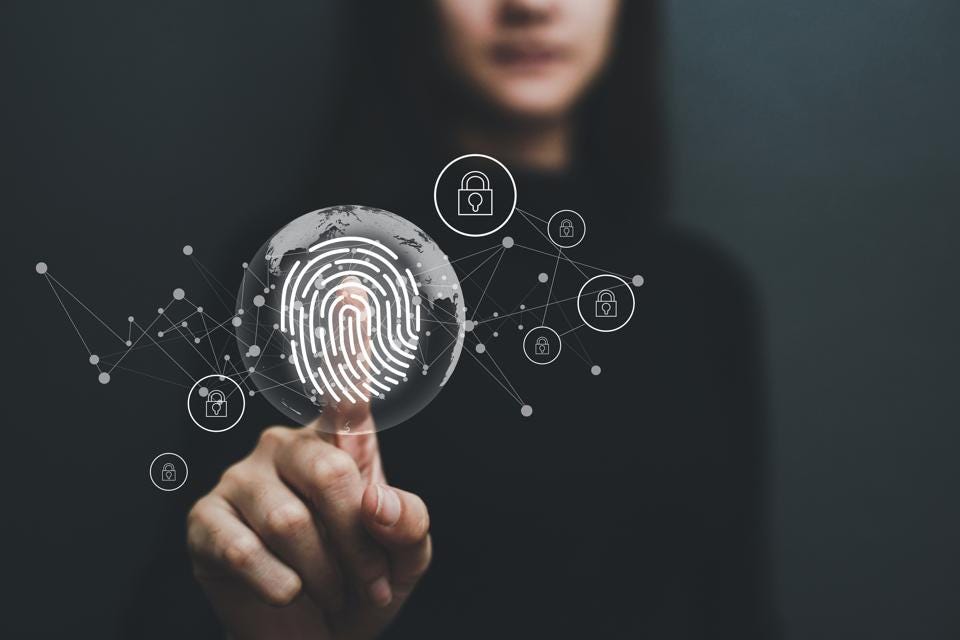What is a digital identity?
A digital identity is an individual’s online presentation – it encompasses everything they post, share, comment on, etc., and can be representative of how they treat others and use digital tools to interact with others: it is essentially an individuals’ online footprint (Stoller, 2016). Jawed et al. (2019) describes these identities as being grounded in attributes, beliefs, motives, values, and experiences.
How do personal versus professional approaches to digital identity affect social media use?
| Personal Approach | Professional Approach |
| Close interaction with family and friends | Close interaction with professionals, colleagues, etc. |
| Share personal photos, politics, hobbies, information, personal opinions. Explore interests; generally more unrestricted | Omit personal information – demonstrate professional qualities and share information viewed as agreeable by most employers; generally more censorship |
| Develop personal relationships (Jawed et al., 2019 | Develop professional relationships (Jawed et al., 2019); encourages networking |
| May lead to interpretation of biases, attitudes, etc. (Boyd, 2010) | Less likely to demonstrate biases, attitudes, etc. Remain more neutral |
| Share personal self; market as an interesting person | Share professional self; market oneself as an ideal “hirable” candidate |
Many people have both professional and personal profiles; this is helpful in separating their professional and personal identities to be shared with others.
How do digital identities converge in networked publics – what are the impacts and/or benefits?
According to Davos (2019), digital identities are increasingly used for:
- Public services
- Proof of residency
- In Estonia, through a digital ID card, individuals can pay taxes, e-vote, fill e-prescriptions, and sign digital documents
As in Estonia, digital identities offer citizens the ability to access various public services anywhere they have access to the network, while saving their time and money (Davos, 2019). However, not everyone has equal and acceptable access to the internet to access digital resources; if this fundamental ethical issue was rectified, the benefits of digital identities in networked publics would be even more compelling.
While our digital identities can help with connection building and personal/professional development, there are also risks involved with the creation of our digital identities including detriments to individuals’ privacy and security if not controlled for (Davos, 2019). Digital identities give the government the ability to track users’ actions and personal information – while important for safety, this may be seen as a privacy violation and lack of an individual’s control; for example, as in Qin et al. (2022)’s article posted in The New York Times, there is resistance to China’s Surveillance State. Additionally, safety risks including security data breaches, phishing, viruses, unauthorized access to disclosed personal information, etc., can be of concern if gained information is subsequently used with malintent (Khan, 2017).
In some cases with social media use, digital identities may not accurately reflect the individual in question (Spracklen, 2015); for both personal and professional identities, social media is often used to “market” oneself to the target audience. Going one step further, in the absence of a representative digital identity, a.k.a. an anonymous account or something similar, one may be able to write messages that could be hurtful (bullying, etc.) – like Macklemore and Ryan Lewis (ft. Mary Lambert) said, “behind the keys of a message board.” What are the consequences? What can we do to prevent this?
My challenge to you, the reader:
Reflect on your social media presence. Is it accurately reflective of yourself? Does it portray your identity as you wish to be seen? Is the information personal or professional, and is this something you have intentionally applied controls for? Are you proud of how you present yourself and interact with others? Always be aware of the site you’re posting to and of the content you post online – if it is something you would mind a future employer viewing, maybe its place is best off of the internet.
References
Boyd, D. (2010). Social Network Sites as Networked Publics: Affordances, Dynamics, and Implications. In Networked Self: Identity, Community, and Culture on Social Network Sites, pp. 39-58. https://www.danah.org/papers/2010/SNSasNetworkedPublics.pdf
Davos. (2019). The Value of Digital Identity for the Global Economy and Society. World Economic Forum. https://youtu.be/1-V7lyxrOmw
Jawed, Mahboob, U., & Yasmeen, R. (2019). Digital professional identity: Dear internet! Who am I? Education for Health (Abingdon, England), 32(1), 33–35. https://doi.org/10.4103/efh.EfH_232_17
Khan, M. J. (2017). Social media rewards and risks. ISACA Journal, 4, 1-5. https://www.isaca.org/resources/isaca-journal/issues/2017/volume-4/social-media-rewards-and-risk
Qin, A., Liu, J., & Chien, A.C. (2022). China’s surveillance state hits rare resistance from its own subjects. The New York Times. https://www.nytimes.com/2022/07/14/business/china-data-privacy.html
Spracklen, K. (2015). Identity-Making and Social Media. In: Digital Leisure, the Internet and Popular Culture. Leisure Studies in a Global Era. Palgrave Macmillan, London. https://doi.org/10.1057/9781137405876_6
Stoller, E. (2016). What is Digital Identity? University of Derby. https://youtu.be/u0RryRbJza0

chuan09123
Hello Kirsten!
I like how you mentioned proof of residency as a benefit of digital identity. As a foreigner myself, I can relate to this point, doing everything online made my life much easier rather than physically going to the embassy. And the risks are there as well, nowadays many identity thefts are happening and we definitely need to improve digital security to ensure our information is protected.